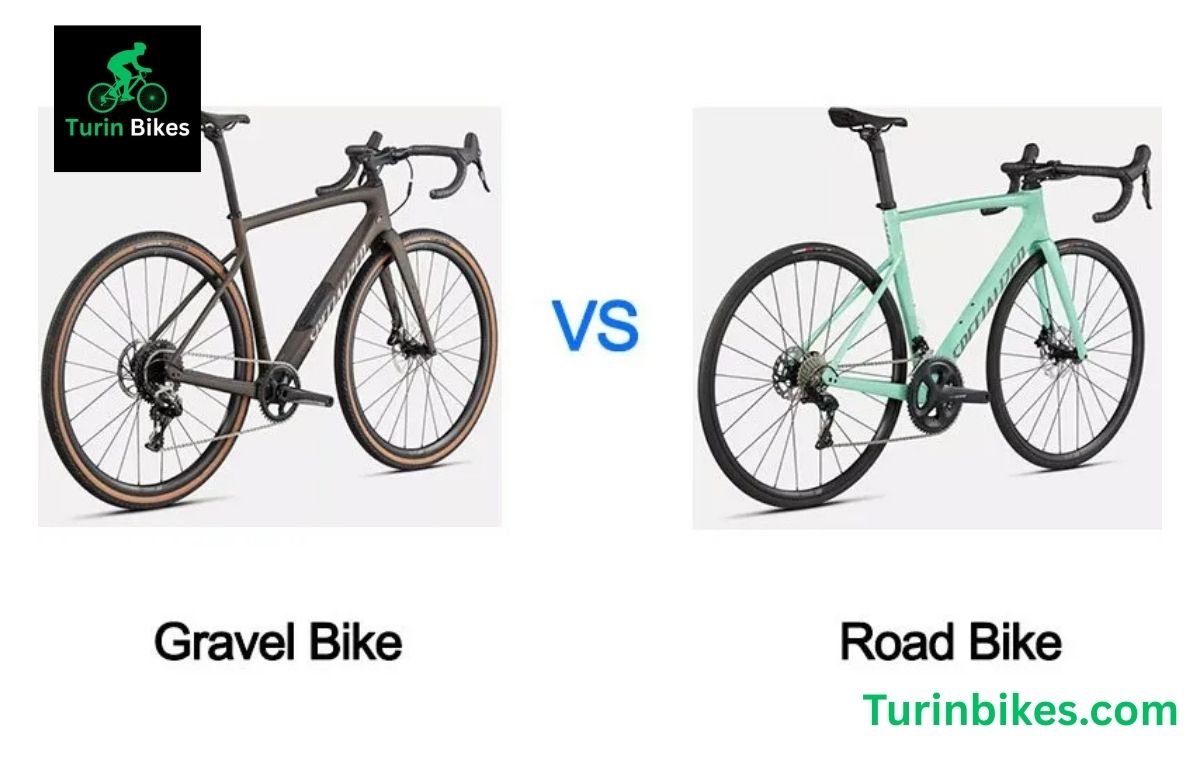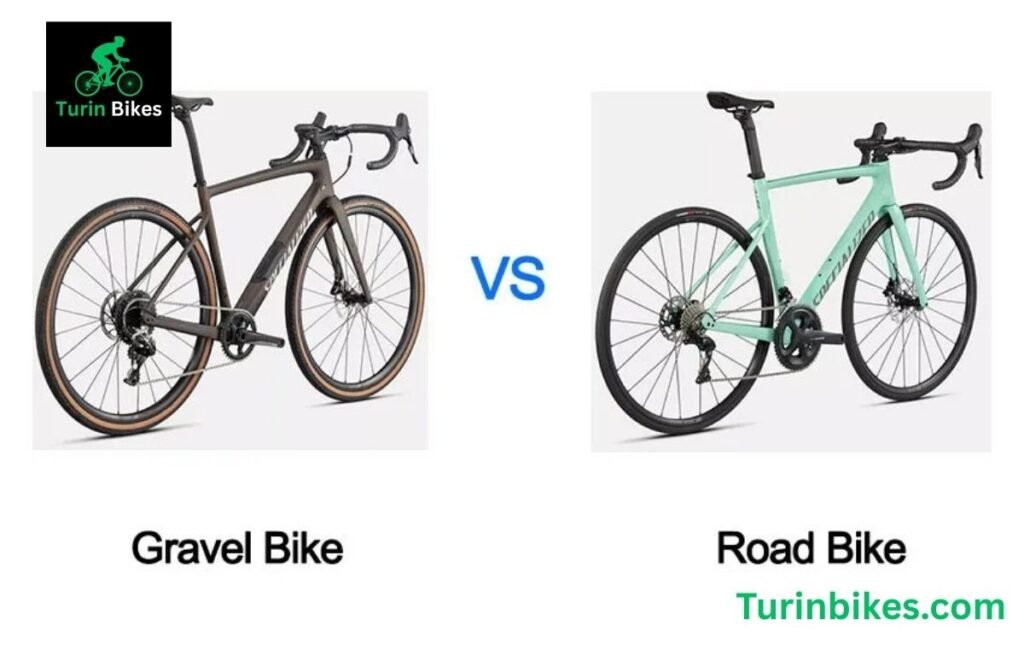
Cycling has exploded in popularity, with road bikes and gravel bikes leading the charge for enthusiasts seeking speed, adventure, or daily commutes. Both deliver thrilling rides, but their designs cater to different needs. Understanding the road bike vs gravel bike distinctions helps riders avoid mismatched gear and maximize enjoyment. Whether you’re eyeing a road bike vs gravel bike for commuting or exploring trails, the right choice aligns with your terrain, fitness, and goals.

What is a Road Bike?
Road bikes prioritize efficiency on paved surfaces. They feature lightweight frames, often carbon or aluminum, drop handlebars for aerodynamic positioning, and thin tires ranging from 25mm to 35mm with minimal tread for low rolling resistance.
These bikes shine in racing, city commuting, and smooth roads where speed matters. Models like endurance road bikes offer slight comfort tweaks, but the focus remains on performance. Riders tackling group rides or long asphalt stretches find road bikes ideal for maintaining high paces without excess drag.
What is a Gravel Bike?
Gravel bikes blend road efficiency with off-road capability. They boast wider tires (up to 50mm or more), relaxed geometry for stability, and versatile frames with mounts for bags or fenders. Tires often have light knobs for grip on dirt.
Best for mixed terrain, trails, and endurance riding, gravel bikes handle gravel paths, light singletrack, and even pavement. Compared to a gravel bike vs mountain bike, gravel models are lighter and faster on flats but lack full suspension for extreme off-road. They’re a step up from hybrids in speed while offering more versatility than pure road bikes.
What is the difference between a gravel bike and a road bike?
Speed & Performance Comparison
In a road bike vs gravel bike speed matchup, road bikes edge out on smooth roads. Their aerodynamic design and slick tires reduce drag, making them 5-10% faster on pavement. For instance, tests show road bikes averaging 1-2 mph higher over flat routes due to lower rolling resistance.
Gravel bikes perform well on mixed surfaces, where wider tires provide traction without sacrificing too much velocity. On gravel or dirt, they outpace road bikes, which struggle with vibrations and slips. Aerodynamics play a role: road bikes encourage a tucked position for wind-cheating efficiency, while gravel’s upright stance prioritizes control.
For hybrids or endurance models, the gap narrows. A gravel bike vs road bike vs hybrid sees hybrids as slower commuters, but endurance bikes mimic gravel versatility with wider tire clearance. In road bike vs gravel bike with road wheels, swapping slicks on a gravel bike can close the speed difference to negligible levels.
Comfort & Riding Experience
Road bikes deliver a stiff, responsive feel for power transfer, but this can translate to discomfort on bumpy roads. Their aggressive geometry suits speed demons, yet beginners may find the bent-over position fatiguing over long distances.
Gravel bikes excel in comfort with flexible frames, higher stack heights, and cushy tires run at lower pressures (around 25-40 psi). This absorbs shocks from potholes or trails, making them ideal for all-day rides. Handling varies: road bikes offer nimble turns on asphalt, while gravel bikes provide stable control on uneven ground. For commuters facing urban obstacles, gravel’s forgiving ride reduces fatigue.
In a gravel bike vs endurance bike comparison, endurance road bikes add compliance features like iso-speed decouplers, bridging the comfort gap without gravel’s full versatility.
Terrain Suitability
Road bikes dominate smooth asphalt, handling hills and potholes with agility but faltering on loose surfaces. They’re not built for off-road, where thin tires risk punctures and frames lack clearance.
Gravel bikes thrive on diverse terrain: gravel roads, dirt trails, and even light off-road tracks. Their elevated bottom brackets avoid pedal strikes, and wider tires grip hills or rough paths. For urban use, they navigate curbs and cracked sidewalks better than road bikes.
Versus others, a gravel bike vs road bike vs mountain bike positions gravel as a middle ground—faster than mountain bikes on roads but more capable off-pavement. Hybrids suit flat commutes but lag in speed or ruggedness.
Cost & Maintenance
Entry-level road bikes start around $1,000-$2,000, with high-end models exceeding $10,000 for carbon frames and electronic shifting. Gravel bikes follow suit, though added versatility (like mounts and durable components) can bump costs slightly higher—budget options hover at $1,200-$2,500.
Maintenance differs by use. Road bikes require less frequent servicing on clean pavement, focusing on chain lubes and brake adjustments every 500-1,000 miles. Gravel bikes endure more dirt, demanding regular drivetrain cleaning and tire checks; expect rebuilds every 2,000-3,000 miles if off-roading often. Components like wider tires and disc brakes (standard on both) add minor expenses, but gravel’s tubeless setups reduce flats.
Resale favors well-maintained road bikes in racing circles, while gravel holds value for adventure seekers. Annual upkeep averages $200-$400, higher for gravel due to terrain wear.
Rider Suitability
For beginners, gravel bikes offer a forgiving entry with stable handling and comfort, easing into cycling without road’s intensity. They’re excellent for road bike vs gravel bike for commuting, especially on mixed urban paths where potholes loom.
Racers and speed-focused riders prefer road bikes for competitive edge and efficiency. Commuters benefit from gravel if routes include trails or rough roads; otherwise, road’s lightness suits daily hauls. Age and fitness matter: older or less fit riders appreciate gravel’s upright posture, reducing back strain.
In a gravel bike vs mountain bike for novices, gravel wins for road-friendly speed without mountain bike bulk.
Expert Opinions & Case Studies
Pro cyclist insights highlight the divide. “Gravel bikes provide stability and comfort on rough terrain, but road bikes are unbeatable for pure speed on pavement,” notes a Cycling Weekly reviewer after testing top models. GCN Tech echoes this: “For commuters, gravel’s versatility makes it a do-it-all machine.”
Real-life cases abound. A Reddit user switched from road to gravel for daily commutes, gaining comfort on bumpy city streets without losing much pace. Another pro, Ryan Villopoto-like in spirit, praises gravel for endurance events blending roads and trails. In Colorado trails, riders report gravel bikes handling rocks better than road counterparts, per forum discussions.
Road Bike vs Gravel Bike: Comparison Table
| Feature | Road Bike | Gravel Bike |
| Tires | 25-35mm, slick | 35-50mm+, knobby |
| Geometry | Aggressive, aero | Relaxed, stable |
| Speed on Pavement | Faster (5-10% advantage) | Slower but versatile |
| Comfort | Stiff, responsive | Cushy, shock-absorbing |
| Terrain | Asphalt, smooth roads | Mixed, trails, gravel |
| Cost (Entry-Level) | $1,000-$2,000 | $1,200-$2,500 |
| Maintenance | Lower frequency | Higher due to dirt |
| Best For | Racing, commuting on pavement | Adventure, mixed-terrain commutes |
Conclusion
Choose a road bike for speed demons craving asphalt efficiency, racing, or smooth commutes where every watt counts. Opt for gravel if adventure calls—trails, mixed routes, or versatile daily rides demand capability without compromise.
Final recommendation: Beginners and commuters lean gravel for its forgiving nature; seasoned racers stick with road. Assess your routes: if 70%+ pavement, road wins; otherwise, gravel’s flexibility reigns in road bike vs gravel bike which is better debates.
Is a gravel bike slower than a road bike?
Yes, gravel bikes are typically 5-10% slower on smooth roads due to wider tires and geometry, but they excel on rough terrain.
Can I use a gravel bike as a road bike?
Absolutely—swap to slick tires and it performs nearly as well on pavement, making it a versatile option.
Which is better for long-distance rides?
Gravel bikes for comfort on varied surfaces; road bikes for speed on consistent pavement.
Are gravel bikes worth the extra cost?
If you ride mixed terrain or seek versatility, yes; otherwise, road bikes offer similar value for pure pavement use.
Can you use a road bike as a gravel bike?
Limited—thin tires and low clearance make it unsuitable for rough gravel, risking damage.
Are gravel bikes just as fast as road bikes?
No, road bikes hold the edge on speed, but gravel closes the gap with road wheels for hybrid use.

SEO Analyst & Bike Research Lead at TurinBikes
With over 5.5 years of experience in local & international SEO and affiliate marketing, Sachin has helped media sites and local businesses grow through data-driven strategies. He runs TurinBikes solo, creating transparent, evidence-based guides using thousands of verified user reviews, manufacturer specs, studies, and surveys – no personal ride tests, no sponsored bias. Focus: Honest recommendations for budget e-bikes and everyday riding needs. Full bio Click Here






